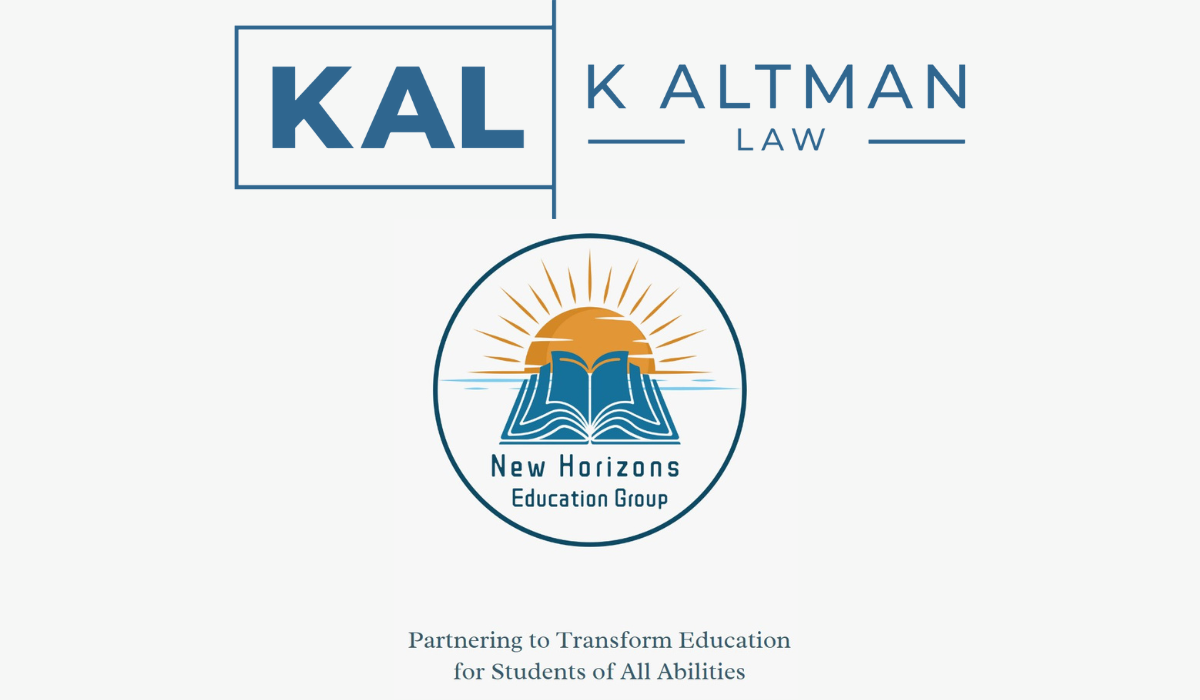Most people associate Title IX with efforts to abolish discrimination against women on college campuses and provide equal opportunity for all. Sexual harassment and sexual assault are also covered by Title IX in addition to sexual discrimination. State institutions that disregard Title IX risk losing financing from the state and the federal government. The Title IX compliance officer job, which investigates complaints in sexual misconduct cases, was established because of this threat.
Universities are required by Title IX to act right away when they learn of sexual assault or sexual harassment. Law enforcement involvement does not absolve the college of its duty to carry out a separate Title IX inquiry, therefore both a college investigation and a law enforcement investigation is carried out, when a report is made.
Importance of Establishing a Formal Title IX Investigation Process
For several reasons, creating a proper Title IX inquiry procedure is vital that includes:
Promoting Safety and Accountability
Allegations of sexual harassment, assault, or discrimination are treated seriously and dealt with quickly thanks to a thorough inquiry mechanism. It fosters an atmosphere where people feel secure in reporting events because they know their worries will be investigated dutifully and fairly.
Protecting Victim’s Rights
By giving victims a fair and equal chance to have their voices heard and their experiences recognized, a structured investigation process helps preserve their rights. Additionally, it may involve temporary safeguards for their well-being and safety throughout the investigation.
Preventing Retaliation
Retaliation against victims or people who report occurrences can be avoided with the aid of a proper process. It deters potential offenders from acting retaliatorily by offering explicit guidelines and protections.
Promoting Transparency and Accountability for Institutions
The handling of Title IX cases by educational institutions is ensured by a well-defined investigation process. Additionally, it makes organizations accountable for taking prompt and proper action to rectify problems.
Fostering a Safe Learning Environment
A thorough Title IX inquiry procedure helps to create a learning environment that is safer and more inclusive. People feel more respected and accountable when they know that their organization takes complaints seriously and responds to them.
Roles in Title IX Investigations
A complete, equitable, and efficient investigation under Title IX is made possible by several important roles and people. The following are typically involved roles, though they may differ slightly based on the policies and resources of the educational institution:
Title IX Coordinator
Title IX Coordinator oversees institution compliance with Title IX regulations, coordinating investigation process, providing guidance, and ensuring policies and procedures are followed.
Investigator(s)
Investigators oversee carrying out a complete and unbiased examination of the claims of Title IX breaches. The Title IX Coordinator or decision-maker compiles information, speaks with witnesses, and writes a thorough report of their findings.
Complainant
The person who files a complaint or reports a purported Title IX violation is known as the complainant. They are the accused target of harassment, discrimination, or misbehavior, and they are vital to the investigation by sharing information and cooperating.
Respondent
The person who is accused of the Title IX violation is the respondent. They have a right to be informed of the accusations made against them and to take part in the investigation.
Witnesses
Witnesses are people who might be able to provide important details about the incident or the parties involved. They give comments and might be questioned by the investigators to get their point of view on the situation.
Supportive Measures Coordinator
This responsibility includes making sure that the complainant, respondent, or other impacted parties receive the proper supportive measures throughout the investigation. These steps may include modifications to the academic program, no-contact directives, counselling, or other forms of assistance.
Adjudicator
In other instances, a different decision-maker or adjudicator is involved to examine the investigative report and decide how the matter will be resolved. Administrator, panel, or other designated personnel may carry out this function.
Legal Counsel
The decision to have legal representation present during the investigative process may be made by both the complainant and responder. Although they can advise and help the parties, attorneys normally do not take part in discussions or but can conduct cross examination at a hearing.
Pre-Investigation Procedures
The activities and measures that an educational institution takes before formally opening a Title IX investigation are referred to as pre-investigation procedures. These processes are crucial for identifying whether a complaint is covered by Title IX, assessing the gravity of the claims, and determining whether a thorough inquiry is necessary. Although different institutions may have different pre-investigation processes, some common steps include:
Assigning Title IX Coordinators
One of the most important steps in ensuring that Title IX laws are followed in educational institutions is designating Title IX Coordinators. The institution’s efforts to stop and address sex-based discrimination, including sexual harassment, sexual assault, and other types of misconduct, are centrally supervised by Title IX Coordinators.
Distributing Notice of Non-discrimination
An essential action educational institutions must take to adhere to Title IX rules and communicate to their campus community their commitment to creating an environment free from sex-based discrimination is the distribution of a Notice of Non-discrimination. The institution’s policy and commitment to following the principles of Title IX, which forbids discrimination based on sex in educational programs and activities, are made public in the Notice of Non-discrimination.
Announcing Reporting Tools for Title IX Violations
A key component of maintaining a secure and encouraging atmosphere in educational institutions is announcing reporting resources for Title IX violations. These announcements encourage people to voice their concerns and strive to inform the campus community about the numerous avenues for reporting instances of sex-based harassment, discrimination, and misconduct.
What is a Title IX Investigation Procedure?
The inquiry process in a Title IX investigation is a formal and methodical process used by educational institutions to evaluate claims of sex-based harassment, sexual assault, and other wrongdoing. Depending on the institution’s regulations and resources, the procedures in the investigation may vary, however, the following are standard steps in the process:
Initiation of the Investigation
When a formal complaint is made or when the institution learns of possible Title IX violations, an inquiry is launched. A written complaint, an online reporting tool, or a direct report to the Title IX Coordinator are all possible ways to do this.
Assignment of Investigators
To undertake a thorough and unbiased investigation of the charges, the institution appoints one or more trained investigators. These investigators could be internal staff personnel or outside experts with knowledge of Title IX issues.
Notice to Parties
The inquiry is disclosed to the complainant and the respondent in writing, together with the precise charges brought against the latter and the institution’s methods for carrying it out.
Evidence Review
The investigators evaluate all gathered information and evidence to establish its reliability and relevance. They might ask for more details if necessary.
Determining Violation using Preponderance of Evidence Standard
The preponderance of evidence test is often applied when deciding whether a violation of Title IX occurred. The evidence acquired throughout the investigation is evaluated using this criterion to determine whether it is more probable than not that a Title IX violation took place.
The “more likely than not” or “51% certainty” threshold is another name for the preponderance of evidence standard. Unlike in criminal trials, it is not necessary to prove something beyond a reasonable doubt or with absolute certainty. Instead, it inquires as to whether the stated behavior or infraction was committed.
Drafting the Investigation Report
The investigators create a thorough report outlining the pertinent facts, witness statements, and any other relevant information based on the evidence acquired.
Notifying Parties of the Outcome
In certain situations, a designated decision-maker or adjudicator who is not one of the investigators analyzes the investigation report and decides how the matter will be resolved. A preponderance of the evidence criterion, or whether it is more probable than not that a violation happened, is used by the decision-maker to decide whether the responder is accountable for violating Title IX. The institution notifies both parties in writing of its decision regarding liability. The institution may also describe the suggested penalties or remedial measures if a violation is discovered.
Post-Investigation Actions
Educational institutions are expected to take the proper post-investigation actions in accordance with the findings and conclusions of the Title IX investigation. These steps are being taken to correct any Title IX violations that were discovered during the inquiry and to guarantee that everyone on campus is protected from discrimination. Depending on the seriousness of the infraction and the institution’s policies, the actions performed may vary, however, some typical post-investigation activities include:
Appeals Process
If the complainant or responder feels there were procedural flaws or fresh material that was not taken into consideration during the investigation, the institution may offer an appeals mechanism that permits them to contest the inquiry’s findings.
Issuing Sanctions for Violators
The implementation of disciplinary measures and consequences on people who have been found accountable for breaking Title IX standards is referred to as issuing sanctions for violators in the post-investigation action of a Title IX investigation. These penalties are meant to punish the offending party for their behavior and discourage such discrimination, harassment, or misbehavior in the future based on gender.
Providing Support Services for Victims
The aid and resources provided to people who have encountered or been impacted by a Title IX violation, such as sexual harassment, sexual assault, or other types of sex-based discrimination, constitutes as providing support services for victims. The victims’ ability to deal with the incident’s emotional, physical, and psychological effects as well as their ability to heal and recover depend on these support services. Support services for victims might vary based on the policies, assets, and collaborations with outside groups of the educational institution, but they frequently consist of counselling and mental health services, medical assistance, academic accommodation, and safety planning
Title IX Investigations in Different States
Investigations under Title IX are uniform throughout all states. However, given state-specific laws, rules, and institutional practices, there might be some variances in how different states execute and manage Title IX cases.
Understanding Title IX Investigations in Massachusetts
Title IX investigations in Massachusetts follow federal standards and procedures, like other states. Educational institutions may have state-specific rules and resources to address sexual harassment, assault, and other sex-based discrimination concerns.
Exploring Title IX Investigations in Texas
Texas may have its own state laws and regulations that strengthen Title IX safeguards, including sexual misconduct cases, reporting requirements, and campus safety measures. The Texas Higher Education Coordinating Board or other state bodies may provide advice and oversight for Title IX compliance and best practices.
Variations in State Policies and Practices
There may be differences in state laws and practices involving Title IX investigations, even though Title IX is a federal legislation that is applicable to all educational institutions in the United States. State-specific laws, rules, and educational procedures may cause these variances. Some common areas where variations might be observed are as follows:
- Reporting Requirements
- Definitions of Consent
- The Confidentiality of Laws
- Timelines and Deadlines
- Training Requirements
- Sanctions and Remedies
- Victim Services and Support
Conclusion
Title IX investigations aim to prevent sex-based discrimination, create a safe campus environment, and promote fairness in education. Institutions are committed to justice, objectivity, and rights, aiming to create a protected, inclusive learning environment for staff, professors, and students. This ensures academic success without harassment or discrimination. The fight for gender parity and safety on college campuses requires constant effort and cooperation from all stakeholders. A culture of respect, inclusivity, and academic performance must be promoted, ensuring everyone is secure. Ensuring Title IX is maintained by students, teachers, and institutions is crucial for achieving Title IX’s full potential and creating a campus climate that respects and upholds the rights of all people.





